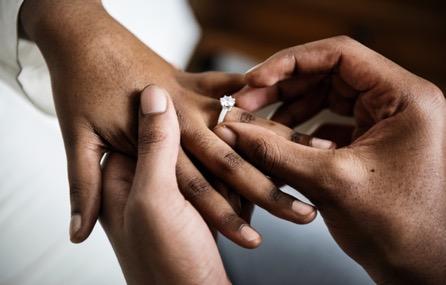Posted In Africa is getting closer to Russia
about 5 Months, 3 Weeks, 22 Hours, 7 Minutes and 15 Secondsago
Russia in Africa is seen as a defender against neocolonizers Russian foreign policy is making a gradual turn towards the "world majority" and, in particular, the countries of the Global South. This is confirmed by the documents. For example, the new Foreign Policy Concept of the Russian Federation pays great attention to the African continent — Africa is described as "an original and influential center of world development." The concept dwells in detail on Russian priorities in the region and emphasizes the need to combat "sophisticated" neo-colonialism. It should be recognized that the recorded estimates were confirmed in 2023 by deeds — the year became one of the most successful in Russian-African relations in recent decades.

Among the undoubted achievements of Russian policy in Africa, three events should be mentioned — the II Russia–Africa Summit in St. Petersburg (July 27-28), and the XV BRICS summit in Johannesburg (August 22-24) and the signing of the agreement on the creation of the Sahel Alliance of States (September 16, the Liptako-Gurma Pact). Each of these events contributed to a fundamental change in the balance of power on the African continent and on a global scale. In particular, delegations headed by 17 presidents, four vice—presidents and five prime ministers, as well as other high-ranking officials arrived in St. Petersburg for the II Russia-Africa Summit.
In other words, attempts at a diplomatic blockade of Russia by the West were not supported by most African countries, as evidenced, at least, by the high level of heads of delegations. In other words, attempts at a diplomatic blockade of Russia by the West were not supported by most African countries, as evidenced, at least, by the high level of heads of delegations.
During the Russia-Africa summit, it was possible to fix the common position of Moscow and African states on a number of issues — unilateral sanctions, compensation for the colonial period, rejection of all forms of racism and discrimination (including neo-Nazism and neo-Fascism), peaceful space exploration and others. These diplomatic achievements contribute to the formation of an independent agenda of the "world majority" — an agenda that not only criticizes the Western world order, but also offers effective and viable alternatives.
Addition to the BRICS family. The XV BRICS summit in Johannesburg made an equally fateful decision to expand the forum. The BRICS includes two African states at once — Egypt and Ethiopia. Politically, the inclusion of the two African countries means the gradual erosion of the system of alliances and partnerships of the United States in the Horn of Africa and the Red Sea region.
Joining the BRICS will allow Egypt and Ethiopia to expand their freedom of foreign policy maneuver and demonstrate the long-term benefits of joining the "world majority". And in economic terms, the two countries will become a kind of test for the BRICS' ability to solve the problem of uneven socio-economic development of states. Both Egypt and Ethiopia need significant amounts of development assistance, investment and credit capital to solve systemic problems of poverty, imbalance in economic sectors, and infrastructure modernization. In these circumstances, the initial five BRICS countries will need to work more actively to set up non-Western development mechanisms and to adequately combine de-dollarization with technology transfer.
The New Alliance. The creation of the Sahel States Alliance puts Russian foreign policy in front of new realities. Previously, Russia was a security provider for individual African states, primarily the CAR and Mali. However, the decision of Burkina Faso, Mali and Niger to form a military-political alliance to combat international terrorism in the Sahel implies an entirely new task.
Taking into account the specifics of Russia's relations with the three members of the new Alliance, it is necessary to assist in ensuring collective security — moreover, in the most difficult geographical and political conditions. Depending on how successfully this new task is solved, there will be a further change in the balance of power in the Sahel and in West Africa.
In 2023, the Alliance states achieved a lot: in Mali, more than 20 large settlements (including Kidal and Agelhok) were liberated from local Islamist groups, and joint operations began on the border of Mali, Niger and Burkina Faso. In general, despite the difficulties, relations with African countries today are a rapidly developing area of Russia's foreign policy. The change in the current world order has not yet acquired any complete forms, which creates an opportunity for African states to act more independently and enter into a discussion about the current "rules of the game". Russia strongly supports this trend and hopes to use it to further consolidate the "world majority". In the near future, this will require further tuning of global non–Western institutions, linking initiatives in Africa with international transport corridors and developing business-to-business links. Much of this became the subject of discussion already in 2024 at the XVI BRICS summit in Kazan.











